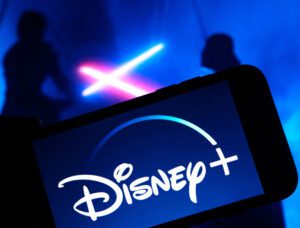 “Data-Driven Thinking” is written by members of the media community and contains fresh ideas on the digital revolution in media.
“Data-Driven Thinking” is written by members of the media community and contains fresh ideas on the digital revolution in media.
Today’s column is written by Jay Friedman, chief operating officer at Goodway Group.
Most of the discussion about who dominates digital media over the past few years has focused on the Google and Facebook duopoly. That’s because Google and Facebook collectively control most bottom-of-the-funnel search activity and time spent on social via YouTube, Facebook and Instagram.
Time spent + where purchase decisions are made = duopoly of market share.
But with the repeal of net neutrality and more content and corporate consolidation on the horizon, that’s looking increasingly likely to change.
All of Google’s and Facebook’s hype is predicated on the assumption that any user can access the duopoly’s content just as easily as any other content. When we remove net neutrality from the equation and the fact that Google and Facebook have been so dominant but have been called out for potential antitrust violations, I think that a telco that throttles or otherwise devalues Google or Facebook content could get away with it in the short term.
Think of it this way: The light bulb industry focused on energy efficiency and whiteness over the past few years. If light bulb companies were concerned that one brand’s light bulb would be dimmed by an electric company and another’s wouldn’t, the focus would move from energy efficiency and whiteness to throughput.
Consolidation and the loss of net neutrality may put telco companies and other large content providers on more equal footing with Google and Facebook.
Another major advantage Google and Facebook have had is how, partly due to their dominance, each has made it so easy for marketers to spend money with them. Whether or not this is the best path for marketers, my experience shows me “easy” beats almost anything for time-strapped marketers. Almost.
If there’s one thing marketers may love even more than easy, it’s name-brand content they can brag about to their boss. With AT&T cleared to buy Time Warner and other telco and media acquisitions sure to follow, the consolidation of high-quality content may prove even more alluring for marketers than the ease of spending with the duopoly.
But it’s not just quality content that’s consolidating. The content is being consolidated among fewer entities that control the content we watch and at what speed and cost. And the acquisitive entities – the telcos – have major deterministic data sets that can be leveraged to rival the duopoly’s targeting.
Imagine if the telcos had content and ad tech assets. Yikes. That could really end the duopoly. Oh, wait.
Verizon already owns Oath – all the old Yahoo and AOL platform assets plus Microsoft’s ad inventory.
AT&T will surely acquire more ad tech assets.
Comcast owns Freewheel. Are additional acquisitions on the road map? I wouldn’t bet against it.
The idea that telcos can influence what is delivered over the internet, own the largest quality content libraries, have significant deterministic data sets and operate large ad tech businesses means I don’t see a duopoly in the future.
Even before net neutrality’s repeal, I saw Amazon making major progress toward creating a triopoly. Now the debate is whether we’re looking at a quintopoly or an even larger competitive set.
Google and Facebook will remain major players in ad tech, but there will be real competition among the largest brands in the space. Insert Michael Jackson eating popcorn GIF here.
Follow Jay Friedman (@jaymfriedman) and AdExchanger (@adexchanger) on Twitter.











